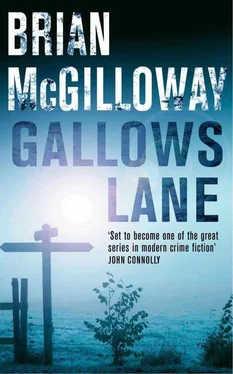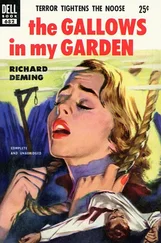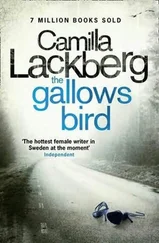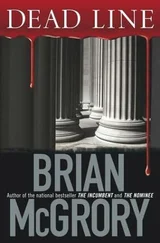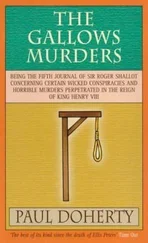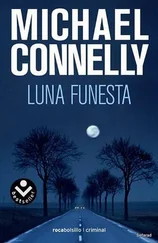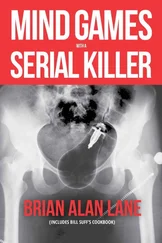Brian McGilloway - Gallows Lane
Здесь есть возможность читать онлайн «Brian McGilloway - Gallows Lane» весь текст электронной книги совершенно бесплатно (целиком полную версию без сокращений). В некоторых случаях можно слушать аудио, скачать через торрент в формате fb2 и присутствует краткое содержание. Жанр: Криминальный детектив, на английском языке. Описание произведения, (предисловие) а так же отзывы посетителей доступны на портале библиотеки ЛибКат.
- Название:Gallows Lane
- Автор:
- Жанр:
- Год:неизвестен
- ISBN:нет данных
- Рейтинг книги:5 / 5. Голосов: 1
-
Избранное:Добавить в избранное
- Отзывы:
-
Ваша оценка:
- 100
- 1
- 2
- 3
- 4
- 5
Gallows Lane: краткое содержание, описание и аннотация
Предлагаем к чтению аннотацию, описание, краткое содержание или предисловие (зависит от того, что написал сам автор книги «Gallows Lane»). Если вы не нашли необходимую информацию о книге — напишите в комментариях, мы постараемся отыскать её.
Gallows Lane — читать онлайн бесплатно полную книгу (весь текст) целиком
Ниже представлен текст книги, разбитый по страницам. Система сохранения места последней прочитанной страницы, позволяет с удобством читать онлайн бесплатно книгу «Gallows Lane», без необходимости каждый раз заново искать на чём Вы остановились. Поставьте закладку, и сможете в любой момент перейти на страницу, на которой закончили чтение.
Интервал:
Закладка:
I nodded.
‘That’s all we need. Things were looking good too. Jesus, Benedict.’ He rubbed his face with the palms of his hands. ‘Listen, say nothing about this to anyone else. I’ll take care of it.’
‘What. .?’ I stopped myself from articulating a gnawing suspicion that Costello knew more about the finds than he was letting on. ‘It doesn’t matter, sir.’
That evening, just after I put the children to bed, Williams called me to say that Peter Webb had been lifted for questioning about the arms and drugs found on his property, at the bottom of Gallows Lane.
Chapter Six
Thursday, 1 June
Peter Webb was in his late fifties, having moved to the area in the early 1970s from the English Midlands. He had taken up a position lecturing in Social Sciences in the Institute of Further Education which had opened in Strabane. Still, he claimed he chose to live in Donegal because it was where his family was from originally. He settled in well, buying a small terrace house in the centre of Lifford.
After a few years he met and eventually married a Belfast girl named Sinead McLaughlin. Though her family were Republicans, Webb’s wife was not known to share her siblings’ sensibilities, a fact underlined by her marriage to Webb himself — an English Protestant. As with many English socialists who move to Ireland, Webb’s politics were known to lean a little towards anti-Englishness, something which made locals all the more suspicious of him initially. The only person less trusted than an Englishman who opposes the Irish is an Englishman who supports them.
Webb was tall and wiry, his frame bigger than the weight it carried, which gave him the look of one who has dieted drastically. His hair, once brown, was now mostly grey; likewise his neatly trimmed beard. He needed glasses for reading but had developed a habit of wearing them perched on his head when he wasn’t using them, so that they would never be lost. He did so now as he sat in the interview room, his head twisted slightly sideways as he tried to read the names and initials of former occupants scrawled on the wall beside his seat.
Patterson was standing outside the room, the door held open by his foot, speaking to Costello. I could see Colhoun sitting patiently across the desk from Webb; his demeanour contrasting so clearly with Webb’s relaxed inquisitiveness that it would have been impossible for a casual observer to guess which was the policeman and which the suspect. But then, Webb was not really a suspect.
He knew nothing and knew he had nothing to worry about. I noticed Patterson wasn’t even taping the interview. I suspected that something I had said had hit home; Webb had been lifted to convince everyone else that the guns-find was sound.
As I walked past, unable to look either Costello or Patterson in the face, I overheard Costello.
‘Give him a phone call, then let him sweat it out for the night. Try again tomorrow.’
Patterson did not reply, but as I walked away I felt sure he was staring at my retreating back.
*
Williams and I spent some time going through the list of builders’ names Paddy Hannon had provided. I had sent two uniforms out to the site to take notes of which of them had tattoos on their lower forearms. In addition, one of the techies in Letterkenny was trying to clean up the CCTV footage for us.
While Williams went to call Control and Command in Dublin for criminal background checks on some possible candidates from Paddy’s list, I turned my attention to James Kerr. Although I considered it a waste of time, I had to try to relocate him, as Costello had demanded. The problem was, I had no idea how to do so. I didn’t know where he was staying and his family had long since left the area. As I had brooded on the problem on the way into work that morning, I recalled the one connection I had for Kerr. I hunted out the religious tract he had left in the patrol car the day I had first met him and recorded the phone number for Reverend Charles Bardwell.
I tried phoning Bardwell several times during the next hour or so, in between scanning records for Paddy Hannon’s builders, with little success in either task. The station had emptied for lunch, the back doors swinging open to allow a little air into the place. I was standing just outside the door, having a smoke, when Helen Gorman, a newly trained uniform, arrived. She looked more than a little annoyed.
Are your phones broken or something in here?’ she said, her face flustered, her hair hanging raggedly from under her cap.
‘The phone hasn’t rung,’ I said, flipping the butt of my cigarette into the gutter and coming back inside. Then I noticed that I had misplaced the phone’s handset after my last attempt to contact Bardwell. The station phone had been off the hook for some time.
‘Harkin’s Pharmacy has been broken into,’ she explained, calming down a little. ‘They had to phone Letterkenny to get someone. They sent me on my own.’
‘Anything taken?’ I asked.
‘I … I haven’t been yet. I was hoping for company. In case I screw it up or something. Do you want to come?’
I glanced at my notes spread across the desk. It was too warm to sit inside anyway, I told myself.
‘Why not?’ I said.
Harkin’s Pharmacy is a small building, backing on to the river. The owners also operate a bigger store in Ballybofey and, as a consequence, their branch in Lifford only opens afternoons. Therefore, it was almost lunchtime before the girl opening up the shop realized that someone had kicked in the back door at some stage during the night. It hung off one hinge; several dirty footprints were clear on the area around the handle.
When we arrived, the assistant, Christine Cashell, was standing outside having a smoke. She had turned into quite a pretty girl, her red hair long and tied back from her face, her features fine, her skin fresh and clean. I had met Christine before, while investigating a case which involved the murder of her younger sister Angela.
‘How’s your mum?’ I asked.
‘She’s good,’ Christine said. ‘Taking some typing course in the Tech, in the evenings like. She’s. . she’s good.’
‘And your dad? Any word on Johnny?’
She looked at me suspiciously for a second, as if trying to gauge if I was asking out of genuine interest, or to establish an alibi. Finally, convinced of my sincerity, she shrugged. ‘He calls sometimes. We haven’t really seen him since. . you know, since Angela.’ Neither of us spoke for a moment, then Christine stepped away from me, as if physically distancing herself from the conversation and the memories it recalled for both of us.
‘I’d best clear up in there,’ she said. ‘Mr Harkin’s on his way down.’
We went into the shop together. Surprisingly, the interior had hardly been damaged. I looked around me, searching for some further sign of the break-in.
‘It’s over here,’ Christine said, as if reading my thoughts.
The drugs were stored behind the counter, packed in locked cupboards with letters labelling the doors: A-D’, ‘E-L’, ‘M-R’, ‘S-Z’. Only the final two doors had been broken open, seemingly pulled right off their hinges, the small locks twisted beyond repair.
‘Might be worth dusting for prints,’ I suggested to Helen Gorman, though she had already produced her dusting kit (so new-looking that I suspected this was its first outing). My suspicion was confirmed by the fastidious manner in which she carried out the task.
Within a few moments, it became clear that her work would serve no real purpose. The doors were covered in prints, overlaid so thickly one on the other that in places the white veneer of the door had vanished under the black fingerprint powder.
‘Anything taken?’ I asked Christine.
Читать дальшеИнтервал:
Закладка:
Похожие книги на «Gallows Lane»
Представляем Вашему вниманию похожие книги на «Gallows Lane» списком для выбора. Мы отобрали схожую по названию и смыслу литературу в надежде предоставить читателям больше вариантов отыскать новые, интересные, ещё непрочитанные произведения.
Обсуждение, отзывы о книге «Gallows Lane» и просто собственные мнения читателей. Оставьте ваши комментарии, напишите, что Вы думаете о произведении, его смысле или главных героях. Укажите что конкретно понравилось, а что нет, и почему Вы так считаете.
